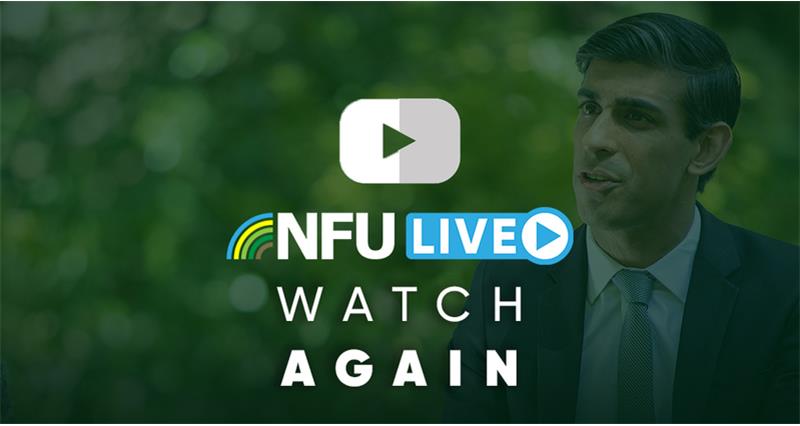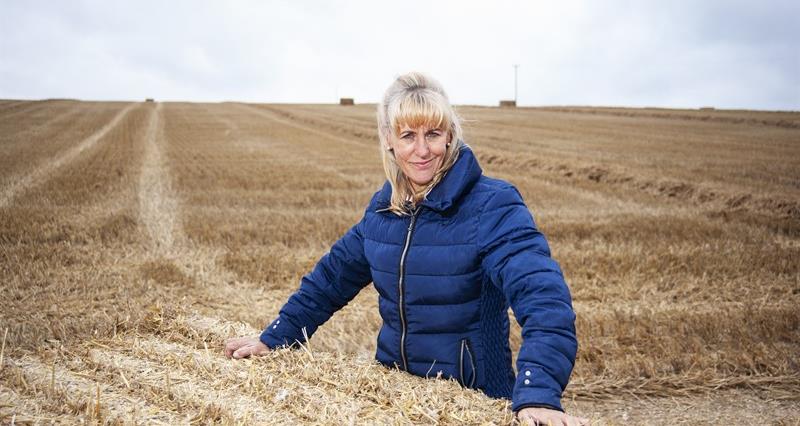In the second NFU Conservative Party Leadership hustings, prior to her appointment at Prime Minister, Liz Truss joined NFU President Minette Batters, at a virtual Q&A event exclusively for members.
Minette and Ms Truss were joined virtually by NFU members from across the country. 91²Ö¿âhas worked extremely hard to secure opportunities for members to ask questions of both candidates this summer, as we try and ensure the current challenges faced by British farming and food production are addressed by the next government.
Rishi Sunak also joined us at an exclusive event for NFU members on 19 August. Watch again by visiting:Ìý91²Ö¿â | Rishi Sunak answers your questions – watch again
Summary
Ms Truss began by reiterating her interest in agriculture, highlighting her two years as Defra Secretary and her rural constituency in Norfolk. She went on to say that the war in Ukraine has brought to life the importance of food security and energy security and stated that we cannot take food availability for granted. You can read a summary of her key points below.
After her opening statement, Minette opened the floor to questions from members which covered a number of key issues impacting farmers and growers.
Land use
When asked whether she would commit to a statutory underpinning of maintaining levels of food self-sufficiency, Truss said she is not a fan of legally binding commitments whether that be for housing, environmental initiatives or food production targets. She stated that, as Prime Minister, she would instead want to focus on delivery by creating the right conditions for farmers to be successful.
Truss said she opposed rewilding and wants to do more to allow farmers to produce food, such as making sure prime agriculture land is not used for solar farms.
Energy security
Ms Truss said her first priority is to deal with the UK’s energy supply, by making sure the UK becomes more energy self-sufficient, just like she wants the UK to become more self-sufficient for food.
Truss continued that she would not just focus on consumers, she would focus on business energy costs to reassure farming businesses. She also agreed to look into fertiliser issues.
Food security
Ms Truss said food security is a priority to her alongside energy security and agreed with Minette’s analysis that there hadn’t been sufficient emphasis on food production by governments to date.
Ms Truss argued there are huge opportunities to increase our domestic food production, particularly in areas such as horticulture, and said she will make sure payment and regulatory regimes support growth.
Truss said she wants farmers to take advantage of value-added products whilst also making sure that the UK has food security it needs through basic products, the importance of which was highlighted by the grain crisis in Ukraine.
Trade
Truss said she believes there are very strong safeguards in the Australia and New Zealand trade deals to make sure prices in Britain are not undercut and that the industry should not fear the impact of those deals as she believes they are an incredible opportunity for the sector.
Truss said she wants to make sure the farming sector is more competitive by getting the industry the investment it needs to reach foreign markets and will look at how the AHDB levy is used.
Regulatory environment
Ms Truss said she wants to simplify environmental schemes and refocus on food production. She said she would want her government to improve the delivery of payment schemes and said as Prime Minister she would want her officials to listen to the NFU on how they can achieve this.
Immigration
Ms Truss said she will commit to having a much more open dialogue between the sector and the Home Office to get the co-designed scheme she has committed to up and running as soon as possible and committed to making sure there’s joint work between the Home Office and Defra to help achieve this.
Ms Truss acknowledged that not all jobs can be replaced by machinery and that the sector needs a secure supply of labour to get crops out of the ground.
Water management
Ms Truss committed to building more reservoirs. She stated there needs to be a cross-Whitehall approach to both land use and water use.
Minette Batters
NFU President | 2018 – 2024
Diversification includes the conversion of a 17th century tithe barn into a wedding and corporate events venue, and horse liveries. Minette co-founded the campaigning initiatives 'Ladies in Beef' and the 'Great British Beef Week'.
Campaigning on behalf of NFU members about the importance of British food and farming has been a key driver for Minette throughout her time at the NFU. In 2020 she led one of the most successful petitions ever, bringing together a coalition of chefs, including Jamie Oliver, farmers, environmentalists, consumer groups and animal welfare experts – resulting in over one million people signing the NFU food standards petition. She has also regularly engaged with different media genres including appearances on Desert Island Discs, Question Time, and Any Questions.
She has been an NFU member from grassroots through to County Chair; she served as Wiltshire’s Council delegate and also as Regional Board Chair for the South West. Minette has also been a member of NFU Governance Board and served as NFU Deputy President for four years from 2014 to 2018, before being elected as president in February 2018. Minette is also an ambassador of Farm Africa and was made a Deputy Lieutenant to Her Majesty Queen Elizabeth in 2021.
Officeholder responsibilitiesÌý
- Trade and standards
- EU and international relations
- Taxation and fiscal policy
- Science and research and development
- Food supply chain (fair dealing, Markets and Authorities, competition, regulation)
- Food service
- AHDB
- Levelling up
- Education

NFU Live: Rishi Sunak answers your questions – watch again


